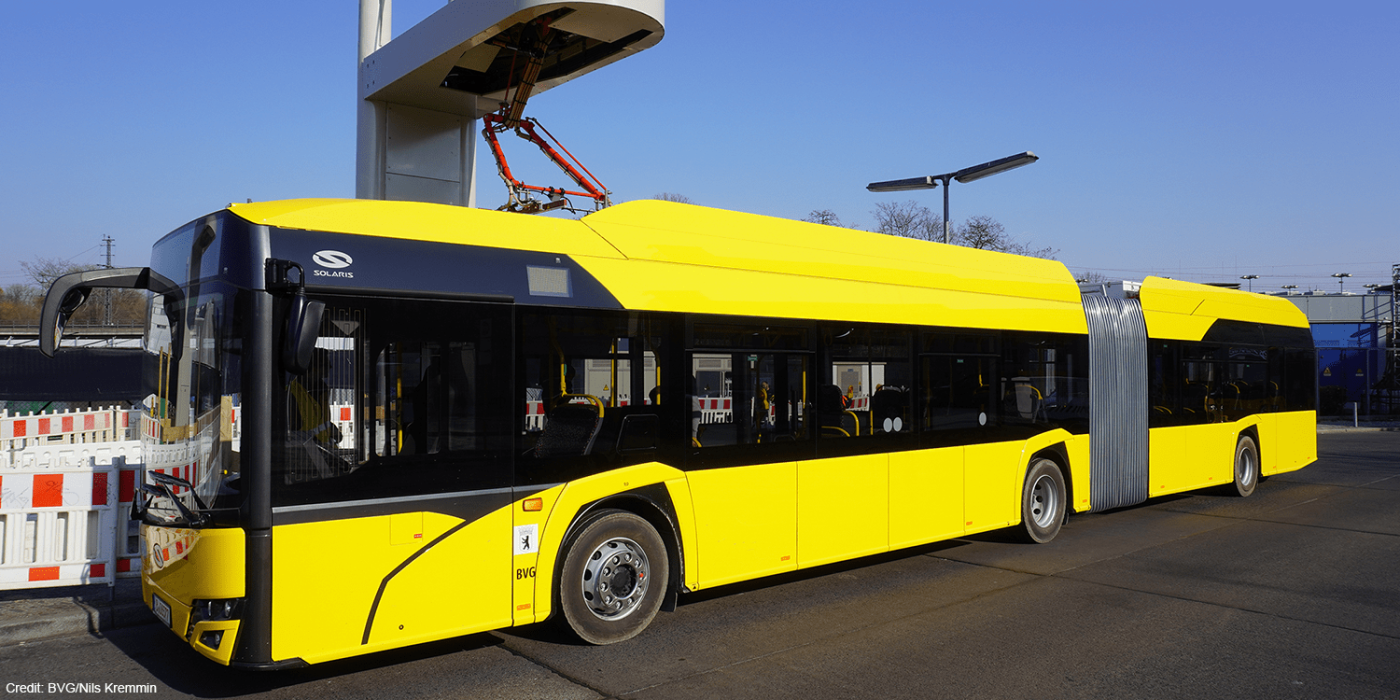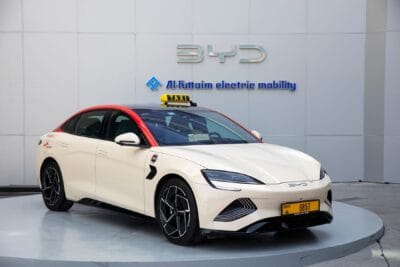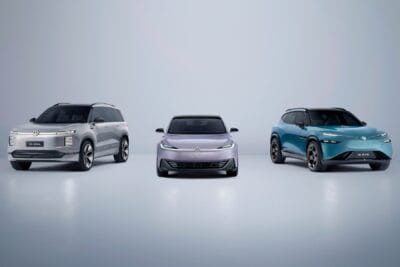Berlin: BVG builds on electric bus fleet
The Berlin transport authority BVG has added the first articulated electric bus to its fleet as part of a research project. Besides, delivery of a total of 90 e-buses ordered from Solaris has begun with the Urbino 12 Electric models about to enter service now.
The latest BVG announcement essentially confirms an earlier report and the begin of deliveries in March. Delivery of the first batch of 30 electric buses will near completion in Berlin this month. Another 60 will follow from early August until the end of the year. Together with the 15 Mercedes and Solaris buses delivered last year and one vehicle from the Mobility2Grid research campus, the BVG fleet will then comprise 121 all-electric single deckers.
The new e-buses will serve entire routes and not only on the 142, 259, 300 and 347 but also on route 147, 155, 250, 294 and N50 with immediate effect. The BVG is also adding a further 83 charging points to its existing 30 charging stations.
Besides, BVG is planning to electrify one more line, route 200 but not as part of the above fleet. Instead, the 200 route is part of the ‘E-MetroBus’ research and development project for which BVG recently added the Solaris Urbino 18 electric, the first articulated electric bus to its fleet. A further 16 vehicles will follow in the coming weeks. After a short test run, the new “E-Schlenkis” as the Berlin transport operator calls them (think: e-swerve) are to take over all trips on route 200 from summer, BVG writes in a press release.
Rolf Erfurt, who is responsible for operations on the BVG board, described the articulated e-buses as “groundbreaking for electric mobility in Berlin”. Not unlike London, the Berlin bus fleet relies in large parts on big models.
To charge the large Solaris buses, BVG opted for rapid charging by pantograph at terminal stops. The first two pantograph chargers from Siemens have already been installed at Bahnhof Zoo, the central station of former West Berlin.
Other partners in the ‘E-MetroBus’ are TU Berlin and the Reiner Lemoine Institute to test vehicles and infrastructure. According to BVG, the project volume amounts to a total of €16.74 million. The transit operator covers most of the cost, up to the amount a comparable diesel bus would have incurred. Additional funding comes through the Federal Ministry of Transport and Digital Infrastructure with a total of €4.3 million. According to the Tagesspiegel paper, the funding focuses on the two pantograph charging stations. The State of Berlin bears the remaining costs for the electric buses.
bvg.de (12-metre e-buses), bvg.de (18-metre articulated e-buses), tagesspiegel.de (all in German)





0 Comments